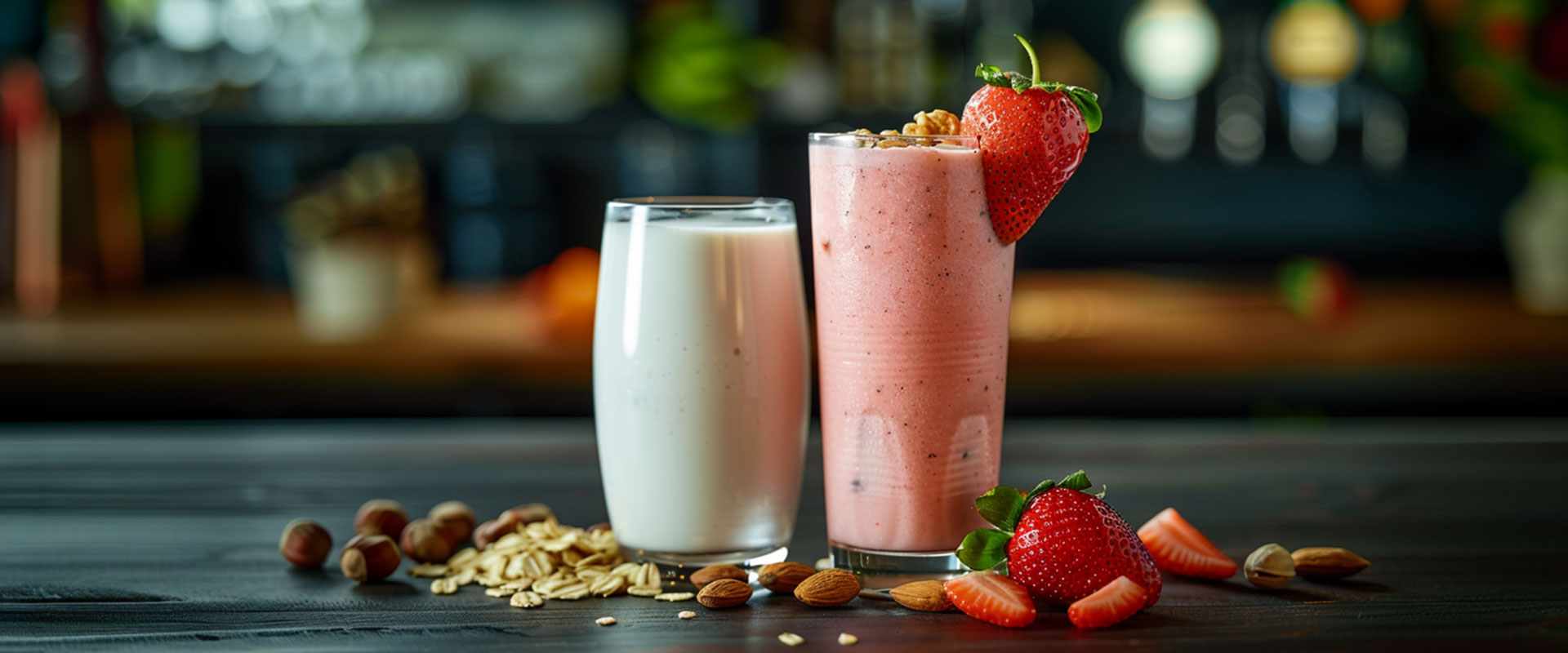In the world of health and fitness, two popular beverages often stand out: smoothies and protein shakes. Both are favored for their convenience, taste, and purported health benefits, but they serve different purposes and offer distinct nutritional profiles. Understanding the differences between these two beverages can help you make informed choices that align with your health and fitness goals.
What is a Smoothie and a Protein Shake
Smoothies:
A smoothie is a blended beverage typically made with a combination of fruits, vegetables, liquid (such as water, juice, milk or yogurt) and sometimes additional ingredients like protein powder, nut butter, seeds or greens. The ingredients are blended until smooth, resulting in a thick, creamy texture.
Protein Shakes:
Protein shakes, on the other hand, are beverages specifically designed to provide a concentrated dose of protein. They are usually made by mixing protein powder with a liquid base, such as water, milk or a milk alternative. While some protein shakes may include fruits or other ingredients for flavor and nutrition, the primary focus is on delivering protein.
The primary different purposes of a Smoothie and a Protein Shake
Smoothies:
Smoothies are often consumed as a meal replacement or snack and are valued for their nutrient density. They can be tailored to include a variety of vitamins, minerals, fiber and antioxidants from fruits and vegetables. Additionally, adding protein powder to a smoothie can enhance its satiety factor and make it more suitable for post-workout recovery or as a balanced meal option.
Protein Shakes:
Protein shakes are primarily consumed to increase protein intake, especially for individuals who have higher protein requirements due to intense physical activity, muscle building goals or specific dietary preferences (such as vegetarian or vegan diets). They are commonly used as post-workout recovery beverages to support muscle repair and growth.
Sign Up for Our Newsletter
Join our mailing list to receive first notice on FREE content, Perks and upcoming events.
Meditate: Meditation reduces stress, improves concentration, and can enhance self-awareness, helping in mental well-being.
Nutritional Content
The nutritional content of smoothies and protein shakes can vary significantly depending on the ingredients used:
Smoothies:
A well-balanced smoothie can provide a range of nutrients, including vitamins, minerals, fiber and antioxidants. The exact nutritional profile will depend on the specific ingredients, but smoothies made with whole fruits and vegetables tend to be rich in vitamins A, C and K, as well as potassium and fiber. Adding protein powder can increase the protein content, making the smoothie more satisfying and supportive of muscle recovery.
Protein Shakes:
The nutritional content of protein shakes is more focused, with the primary emphasis on protein. Protein powders are available in various forms, including whey, casein, soy, pea and hemp protein, each with its own amino acid profile and absorption rate. Whey protein, derived from milk is one of the most popular options due to its high biological value and rapid digestion, making it an ideal choice for post-workout recovery. Protein shakes may also contain carbohydrates and fats, depending on the specific formulation and intended use.
The primary purpose of each beverage
Choose a Smoothie When:
- You want a balanced meal or snack with a variety of nutrients.
- You need a quick and convenient way to increase your intake of fruits and vegetables.
- You prefer a thicker, more substantial beverage.
- You’re looking for a satisfying post-workout recovery option that combines protein with carbohydrates and hydration.
Choose a Protein Shake When:
- You need to increase your protein intake without consuming excess calories or carbohydrates.
- You want a fast-digesting protein source for post-workout recovery.
- You’re following a specific dietary plan that requires higher protein intake.
- You prefer a lighter, more easily digestible beverage.

